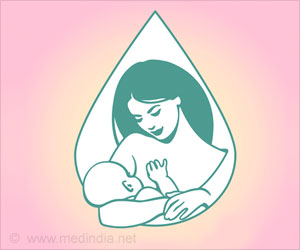A new fertility test technique that can double chances of pregnancy and also provide results more quickly than now is being offered in the UK.
A new fertility test technique that can double chances of pregnancy and also provide results more quickly than now is being offered in the UK.
The test identifies which eggs have the best chance of being successfully implanted in the womb - a major factor in determining the success of IVF treatment.The test gives results in less than 48 hours, meaning the best eggs or embryos can be used immediately or frozen for future use.
Most existing tests take several days for their results to be processed.
Current tests also check for only a few abnormalities, whereas the latest technique - known as comparative genomic hybridisation - checks the egg has a full complement of normal chromosomes.
Specialists from the CARE Fertility Group of clinics said their pioneering technique could drastically improve the chances of pregnancy for women with long-standing fertility problems.
Results from a trial run with a team from the US found the number of embryos that implanted in the womb rose from 25 per cent to 50 per cent, reports Daily Mail.
Advertisement
"We have been waiting for more than ten years for a technology which allows us to select the most viable embryos," he added.
"We now have trial results showing CGH dramatically improves implantation rates because it allows us to choose eggs which are most likely to lead to a pregnancy.
"Since the trial started we have developed the test further and are ready to offer a novel array CGH to patients for the first time."
Doctors have been trying for some time to produce a test for pre-implantation genetic screening that is comprehensive and proven to improve conception rates.
Their efforts intensified after the British Fertility Society criticised earlier versions.
Last year CARE Fertility Group in Nottingham, in collaboration with the Sher Institutes for Reproductive Medicine in New York, tested DNA from a tiny part of the egg known as the polar body.
This contains all the chromosomes and can be safely removed without jeopardising its capacity to become an embryo.
Because the trial was using a prototype technique, the eggs were fertilised and frozen while the results were processed.
When the results came back, the best embryos were selected and implanted.
The results showed that 48 per cent of the selected embryos had successfully implanted - twice the expected rate.
Almost two-thirds of embryos transferred resulted in a delivery, leading to 26 out of 42 women having babies, including six sets of twins.
This rate was higher than the researchers had expected.
CARE's advanced version of the test is the first to be licensed by the IVF watchdog, the Human Fertilisation and Embryology Authority, for use in women over the age of 35 with a history of repeated IVF failures or recurrent miscarriage.
Dr Fishel hopes that eventually all women having IVF will be able to use the test to identify their eggs most likely to produce a baby.
This would mean they would not have to have two or three embryos implanted as an "insurance" policy.
He said: "This would help avoid the risk of multiple pregnancies because we could put back a single embryo with a high chance of success."
He admits the high cost of the technique - £2,900 for testing eight eggs - is likely to initially limit demand.
But he said that as more couples use the technique, which is available to private patients, the cost should come down.
Source-Medindia
GPL/L











